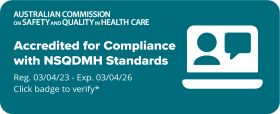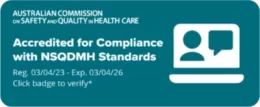Quick facts
- Post-traumatic stress disorder (PTSD) can develop in response to traumatic situations, especially very shocking, extreme or sudden events.
- People with PTSD relive the traumatic event in some way, avoid reminders of it, and might feel vigilant or on edge a lot of the time.
- People living with PTSD can benefit from self-care strategies and psychological support that is safe and empowering.
- It is possible to live a full and meaningful life even if a person has experienced PTSD.
-
What is post-traumatic stress disorder (PTSD)?
Post-traumatic stress disorder (PTSD) is a type of mental health issue that can develop after a traumatic event. A traumatic event is generally something shocking or overwhelming, such as being exposed to injury, death, or violence. Even learning about these types of events can be traumatic for people, especially if they happen to a close family member or friend, or hear extreme details over time.
People affected by PTSD may feel anxious and highly vigilant, and have intrusive thoughts and memories of the trauma. It can be extremely distressing and interfere with day-to-day-life, such as work and relationships.
People with PTSD may also experience other mental health issues, such as depressive disorders, anxiety disorders, personality disorders, and substance use disorders1.
-
Symptoms of PTSD
Feeling strong reactions such as fear, anger or sadness are natural after a traumatic event. For most people, these feelings will pass with time and support from friends and family. For people who develop PTSD, these feelings are intense, distressing and, if left untreated, can last for a long time.
PTSD can take years to develop. Childhood trauma can continue to affect adults many years after the traumatic event happened.
To receive a diagnosis of PTSD after a traumatic event, a person must have experienced the following symptoms for at least one month2:
- Intrusive reminders of the event. These may be involuntary and distressing memories, dreams, or flashbacks of the event. As well as strong emotions, there may be physical symptoms such as sweating, heart palpitations or panic attacks.
- Avoiding reminders of the event. Avoiding activities, places, people, thoughts or feelings associated with the event.
- Mood and thought changes. Difficulty remembering parts of the event, negative beliefs, feelings of guilt, fear or shame, low mood, or feeling detached.
- Physical and behavioural changes. Feeling anxious, ‘jumpy’, or irritable. Acting recklessly, sleep disturbances, or difficulty concentrating.
Some people also experience dissociation as part of their PTSD – a feeling of being disconnected from reality.
-
Causes of PTSD
PTSD is caused by traumatic events. Trauma can lead to PTSD in several ways:
- Memories of traumatic events are processed differently to other memories. They are not 'filed away' like most memories, and instead can come up unexpectedly with strong emotions.
- A traumatic event can change a person's idea of what is safe, meaning they are constantly on edge and anticipating danger.
- Going through a trauma can cause intense negative emotions that are hard to handle, and people can try to cope in ways that are ineffective or unsafe.
It can be hard to predict who might develop PTSD after a traumatic event. People are more likely to develop PTSD if the traumatic event was particularly sudden, intense, shocking or impactful. But this can also vary based upon:
- genetic factors
- environmental factors, such as cultural norms
- support systems and safety
- the age a person experienced trauma
- personality and coping styles
- how the person views the events personally3.
-
How common is PTSD?
- 5.7% of Australians have experienced PTSD in the last year8
- 10.7% have experienced it in their lifetime8
-
Managing PTSD
There are strategies people can use to help with symptoms and recovery from PTSD:
- Learning ways to soothe the mind and body when going through flashbacks or intrusive memories.
- Learning about the idea of a ‘window of tolerance’ (here is a helpful video)
- Taking part in activities that are meaningful or fun.
- Avoiding isolation – developing a support network of trusted friends or family members, and reaching out to them when you need help.
- Taking care of physical health by getting enough sleep and staying active.
- Sharing and connecting with others who have had similar experiences – for example, joining a peer support group.
-
Treatment and support for PTSD
If someone is concerned about symptoms of PTSD, it is a great idea to talk to a GP. A GP can support people with information and referral options to support services or mental health professionals.
Ideally, any treatment for PTSD should be trauma-informed – this means it is safe, trustworthy, empowering and collaborative6.
Often treatment for PTSD involves some form of psychological therapy. Psychological therapies that might be helpful for PTSD include trauma-focussed cognitive behavioural therapy (CBT), cognitive therapy, eye-movement desensitisation and reprocessing (EMDR), and exposure therapy7.
Therapy should usually first involve creating a safe environment. From this place of safety people can learn skills to manage distress and traumatic memories or flashbacks. Over time, treatment with a therapist might also involve processing unresolved aspects of the trauma
Treatment and therapy can also focus on other parts of a person’s life - building up self-esteem, self-compassion, and focusing on strengths and goals.
Other treatment options include medication, such as antidepressants. Medication can be used in combination with psychological therapies, or may be helpful when other mental health issues are present, such as depressive disorders7.
-
Help for family & friends
The family and friends of someone who has experienced PTSD need care and support too — it’s okay for family and friends to set boundaries, and to prioritise their own physical and mental health.
There are many other people out there who share similar experience, and many services designed to help carers of people with mental health issues. Check out our Guide for Families and Friends for more info.
To connect with others who get it, visit our online Forums. They’re safe, anonymous and available 24/7.
-
Resources and support
- 'Nothing was ever your fault': living with PTSD and complex PTSD (SANE blog)
- Complex PTSD fact sheet and Post-traumatic growth fact sheets (SANE)
- Phoenix Australia – guidelines, factsheets, research and training
-
References
1. Galatzer‐Levy IR, Nickerson A, Litz BT, Marmar CR. Patterns of lifetime PTSD comorbidity: A latent class analysis. Depress Anxiety. 2013;30(5):489–96.
2. American Psychiatric Association. Diagnostic and statistical manual of mental disorders (5th ed.; DSM-5). In: 5th ed. American Psychiatric Association; 2013.
3. Phoenix Australia. Trauma and trauma reactions. In: Australian Guidelines for the Prevention and Treatment of Acute Stress Disorder (ASD), Posttraumatic Stress Disorder (PTSD) and Complex PTSD. 2020.
4. Kessler RC, Aguilar-Gaxiola S, Alonso J, Benjet C, Bromet EJ, Cardoso G, et al. Trauma and PTSD in the WHO World Mental Health Surveys. Eur J Psychotraumatol [Internet]. 2017 Oct 27;8(sup5):1353383. Available from: https://doi.org/10.1080/20008198.2017.1353383
5. Australian Bureau of Statistics. National Survey of Mental Health and Wellbeing: Summary of Results [Internet]. 2008. Available from: https://www.abs.gov.au/statistics/health/mental-health/national-survey-mental-health-and-wellbeing-summary-results/latest-release
6. Phoenix Australia. Complex PTSD. In: Australian guidelines for the prevention and treatment of acute stress disorder, posttraumatic stress disorder and complex PTSD. 2020.
7. Phoenix Australia. Treatment recommendations. In: Australian guidelines for the prevention and treatment of Acute Stress Disorder, Posttraumatic Stress Disorder and Complex PTSD. 2020.
8. National Study of Mental Health and Wellbeing: Summary Results, 2020–21, https://www.abs.gov.au/statistics/health/mental-health/national-study-mental-health-and-wellbeing/latest-release#prevalence-of-mental-disorders">https://www.abs.gov.au/statistics/health/mental-health/national-study-mental-health-and-wellbeing/latest-release#prevalence-of-mental-disorders










